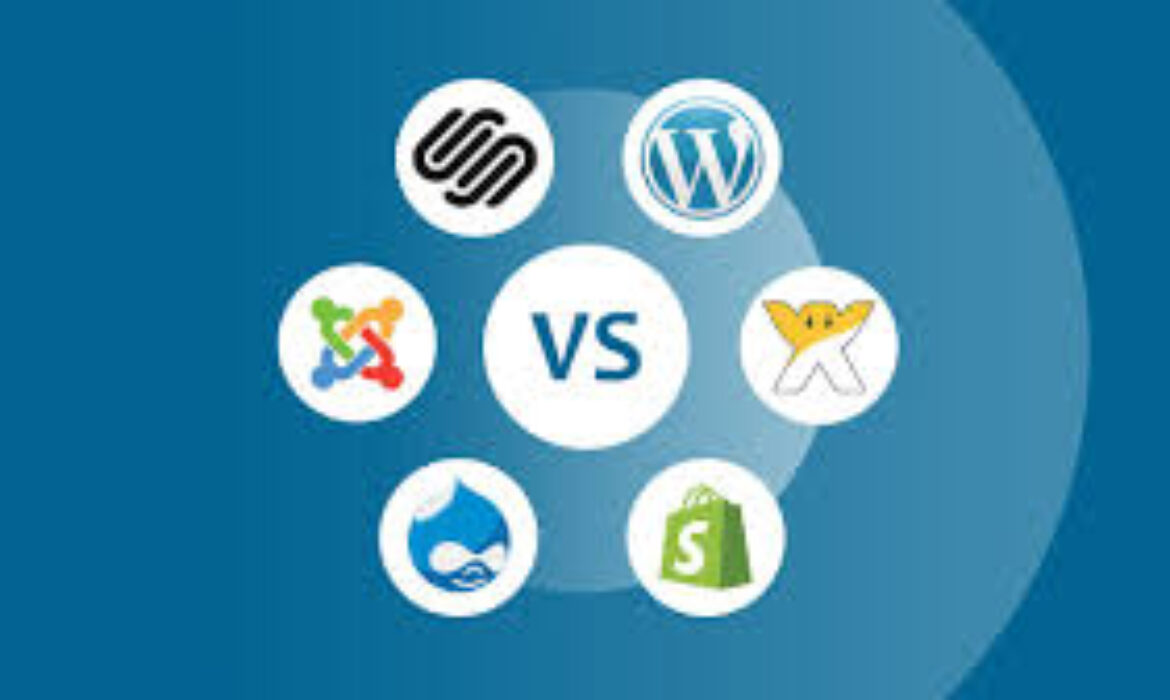
Choosing the right content management system (CMS) can sometimes be a hassle, especially if you just started your website-building career.
If you have been in this work lane a little longer, you have undoubtedly heard that WordPress is the most popular content management system globally.
But the question remains: is it the best one?
For this post, we consulted with a successful enterprise WordPress development agency to provide you with helpful information regarding WordPress. We’ll also delve into other popular content management systems, comparing their features, different aspects, and general usability.
WordPress: General Overview
WordPress has proven itself to be an absolute powerhouse regarding content management systems. Over the past two decades, WordPress has dominated the CMS market, powering more than 40% of all websites on the internet.
Key Features
- WordPress is famous for its intuitive interface, which is an amazing feature, especially for new web developers.
- Also, WordPress has an enormous range of plugins for even greater functionality, providing many different problem-solving options.
- Additionally, WordPress offers countless themes and customization options, making it incredibly easy and time-saving to tailor your website according to your needs and desires.
Slight Disadvantages
Of course, there have to be some cons to this powerful content management system:
- WordPress has security vulnerabilities to some degree, as it requires regular updates and more advanced security measures to prevent possible exposure to threats.
- This CMS can be a little harder to execute in terms of more advanced customization, especially if you are a beginner, as it requires technical expertise to some degree. Because of these reasons, larger-scale websites might face some performance issues.
A Review of Other Content Management Systems
Now that we have briefly reviewed WordPress’s key points, we will analyze a few other major content management systems.
Joomla
Joomla is another prevalent content management system offering many advantages that can significantly improve web development practices.
Key Features
- One of Joomla’s key features is its strong content management. It offers excellent flexibility and scalability, making it a perfect CMS for complex websites.
- If your website’s target audience expands to multiple regions, Joomla is the most suitable CMS for you. It has built-in support for multilingual websites, making the translation and region adaptability process much more manageable.
- Last but certainly not least, this CMS has strong and active community support and many available extensions, enabling you to seek help at practically any moment.
Things to Look Out For
No matter how strong Joomla’s high points are, there are a few things worth noting before you decide to use this CMS:
- For instance, Joomla is a significantly more complicated content management system for beginners to learn, especially compared to WordPress. Joomla’s complexity can be a big problem and a real turn-off point for some people.
- Another slight disadvantage of Joomla is its small plugin base, a field in which other CMS excels.
Drupal
Drupal is a content management system ideal for more complex websites with higher traffic rates. This is due to Drupal’s amazing scalability, which enables your website to function according to its size as it grows larger over time.
Key Features
- A field where Drupal stands out is its robust security-focused approach. This is significant for every type of website, but mainly for those handling sensitive information.
- This unique CMS offers elevated customization options that make a difference. Its customization options really cater to web developers’ needs, so you will be able to extend your platform and include new features seamlessly.
Main Disadvantages
Drupal has a few negative things that need to be pointed out:
- Like Joomla, Drupal is slightly more complicated to learn and handle, as it is not as user-friendly as WordPress.
- It also demands significantly higher server resources than other popular content management system options, which can be a real problem for smaller businesses.
Wix and Squarespace
Wix and Squarespace is an excellent all-in-one CMS solution that can improve site-building practices.
Key Features
- Wix has a fantastic user-friendly interface that is ideal for beginner web developers.
- On the downside, it has decently limited flexibility options for more advanced users, and it may face scalability issues for larger projects, catering more to beginners than seasoned developers.
- Squarespace excels in the design field, offering a plethora of sleek design templates. It also has a user-friendly interface and is generally pretty easy to use.
- Unfortunately, it does not offer many customization options, so you will be presented with pretty basic features in that field. This can be somewhat restrictive for more complex websites.
Final Thoughts
Choosing the right content management system can sometimes be exhausting, as the choices are vast.
Fortunately, several factors can be used in the decision-making process, including ease of use, scalability, customization, and security concerns.
WordPress is always a general choice, while others are more for specific requirements.
Think about what your website needs, consider your requirements carefully and thoroughly, and you will be able to make the right choice!



